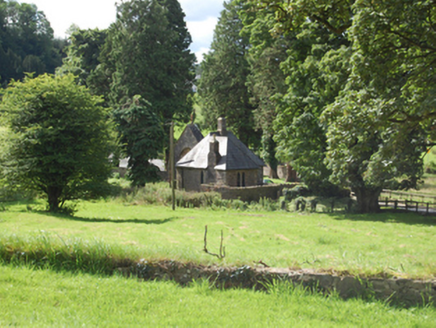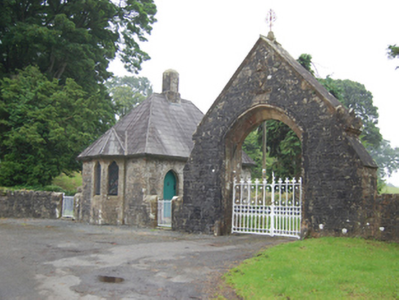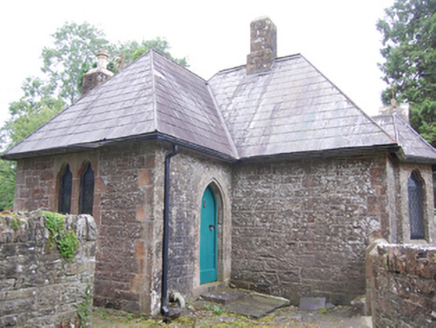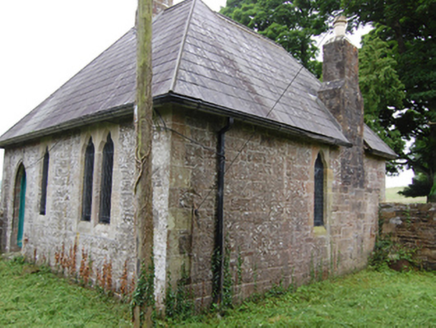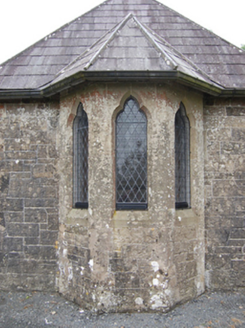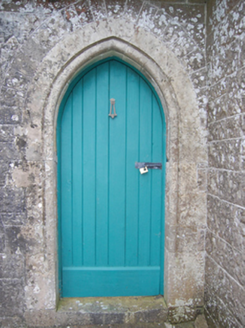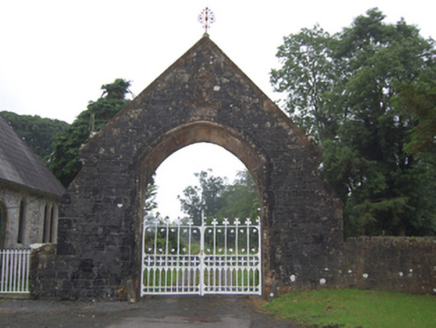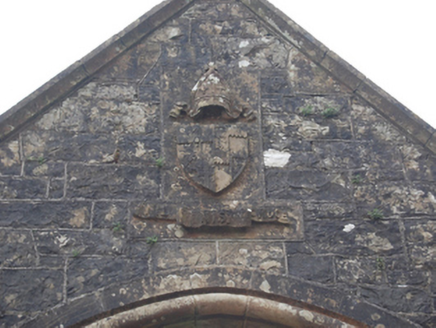Survey Data
Reg No
40402504
Rating
Regional
Categories of Special Interest
Architectural, Artistic, Historical, Social
Previous Name
See House
Original Use
Gate lodge
In Use As
Gate lodge
Date
1850 - 1870
Coordinates
238461, 303403
Date Recorded
10/07/2012
Date Updated
--/--/--
Description
Detached Gothic Revival L-plan three-bay single-storey gate lodge, built c.1860. Steeply hipped slate roof with lead-roll ridges, two cut-stone shouldered chimneystacks with chamfered cap, replacement rainwater goods. Squared snecked and skew jointed cut-limestone walls with dressed sandstone quoins and surrounds to openings. Trefoil-headed window openings with chamfered reveals and sills having metal lattice windows. Small canted bay to road with corresponding trefoil headed windows. Pointed arch door openings having roll mould reveal and replacement sheeted timber door. Boundary wall in line with front elevation of lodge flanked to either side by pedestrian gates of decorative wrought-ironwork. Steeply gabled vehicular entrance pointed arch of snecked and skew-jointed cut-stone, carved episcopal coat of arms and motto near apex, cut-stone fractable having metal finial and low gableted kneelers, roll-moulded arris, and sides formed as buttresses with steep angled weatherings. Decorative wrought-iron double-leaf gates.
Appraisal
This lodge and arch form a suitably fine prelude to Kilmore Cathedral and the Bishop’s House, and retain their original form and character. Executed in cut stonework of the highest quality, the structures are in a corresponding Gothic Revival style to the cathedral, with identical materials and detailing indicating it was designed by the British architect William Slater (1818-1872) at the same time as he designed the cathedral. The diminutive size of lodge is in strong contrast to the large cathedral that is sited on an elevated site, visible behind it from the roadside. The lodge and gateway form a picturesque group of medieval derived forms, which enhance the roadside setting, and form part of an architecturally significant ecclesiastical complex including the cathedral, the old cathedral, and See House.
